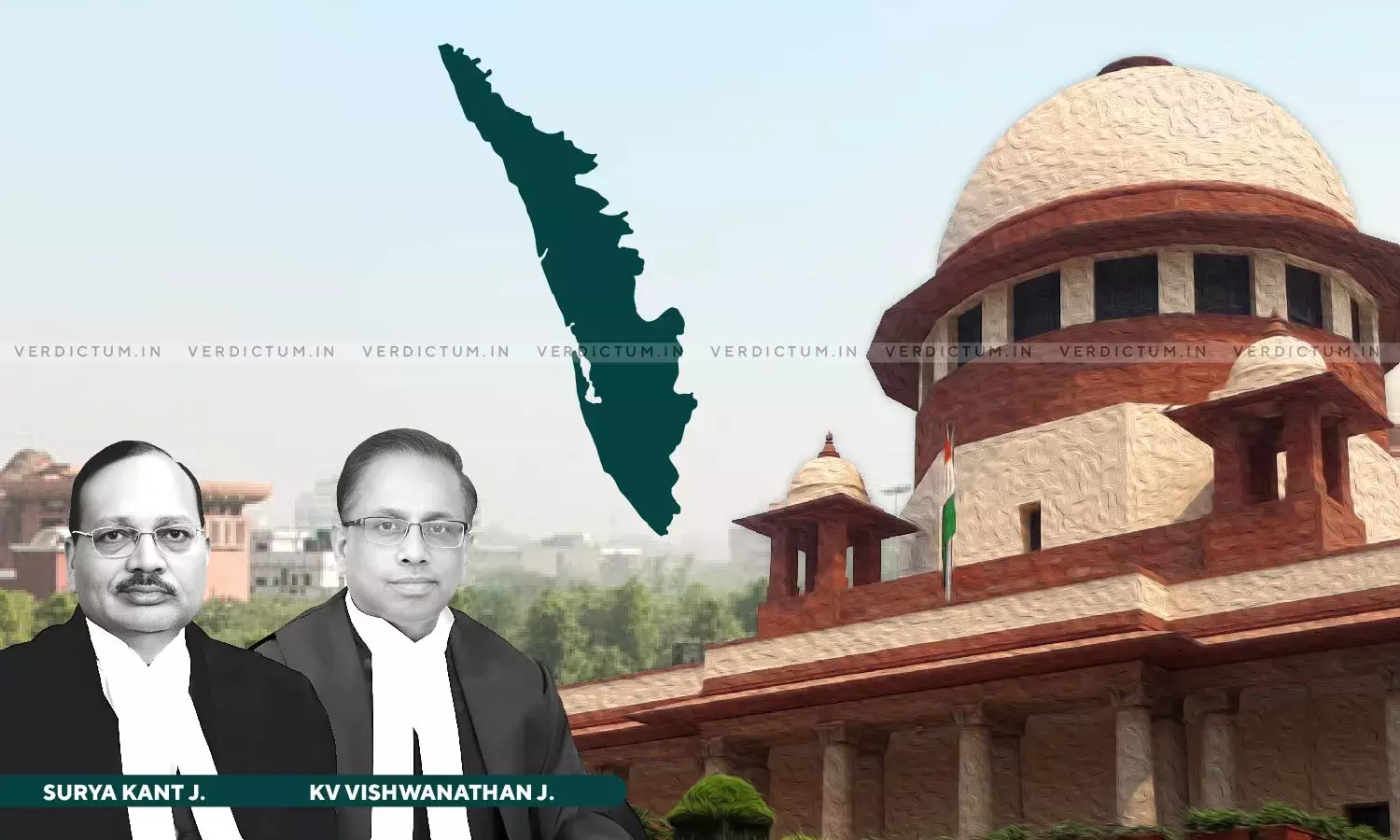Breaking: Supreme Court Refuses Interim Relief To Kerala In Its Suit Challenging Borrowing Limits Imposed By Centre; Refers Case To Constitution Bench

The Supreme Court refused interim relief to Kerala in its Suit challenging borrowing limits imposed by the Central Government.
The Court observed that, at this stage, the balance of convenience lies with the Union of India.
The Bench of Justice Surya Kant and Justice K.V. Vishwanathan also referred the Suit to 5-Judge Constitutional Bench.
"It seems to us that the instant Suit raises more than one substantive question regarding interpretation of the Constitution," the Bench said. The Court formulated four questions regarding the same.
The Court ordered, "Since Article 293 of the Constitution has not been so far subject to any authoritative interpretation of this Court. In our considered opinion, the aforesaid questions squarely fall within the ambit of Article 145 (3) of the Constitution. We therefore, deem it appropriate to refer this questions by a Bench comprising of 5-Judges, that is a mandate of Article 145(3)."
"As regard to the interim injunction, we considered the triple test of the prima facie case. Balance of convenience and irreparable injury....Prima facie we are inclined to accept the argument of the Union that there is overutilization of the borrowing limit, in the previous year, to the extent of over borrowing deductions are permissible in the succeeding year, given in view of the award given in the 14th Finance Commission. This is the matter which is to be finally decided in the Suit," the Bench added.
The Court also opined that partly rather substantial relief has been granted to State of Kerala through it. Accordingly, the Court disposed of the plea.
Pertinently, on March 22, the Bench had reserved order in the interim plea. During the hearing, Senior Advocate Kapil Sibal, on behalf of the State of Kerala, had argued that the executive power of the Union cannot be used to disentitle the state from borrowing from the market and that there is no such power under the Constitution. He had further submitted that the Centre is preventing the State from even approaching the market for borrowing and that the market will decide on whether to lend to the state taking into account all factors.
Attorney General (AG) R Venkataramani and Additional Solicitor General (ASG) N Venkataraman appeared for the Union of India. ASG Venkataraman had argued that inaccurate statements have been made by the state. Pointing to statistical data, the ASG had asserted that Kerala has been borrowing excessively in recent times. Emphasizing the importance of financial considerations, he had urged the Court to take into account the State's fiscal parameters when considering interim relief.
Earlier, the Bench had suggested, "Sit together and resolve it. Let all the senior officers who are capable to take the decision and who are already involved in the decision, all to sit together. We grant liberty to mention the matter."
Pertinently, in February this year, a detailed note was filed by Attorney General (AG) R. Venkatramini before the Court, highlighting the poor public finance management by the State despite several financial grants by the Centre. Several reports and studies were cited and referred to argue that the State government's demand for more funds from the Centre will not resolve its problem as Kerala is a "highly debt stressed" State. The note was filed as a response to a Suit filed by the State in 2023, alleging that the Central government was interfering with its power to borrow and regulate its own finances. As per the State, the action to regulate its powers would lead to a grave financial crisis.
Cause Title: State of Kerala v. Union of India [ORGNL.SUIT No. 1/2024]

